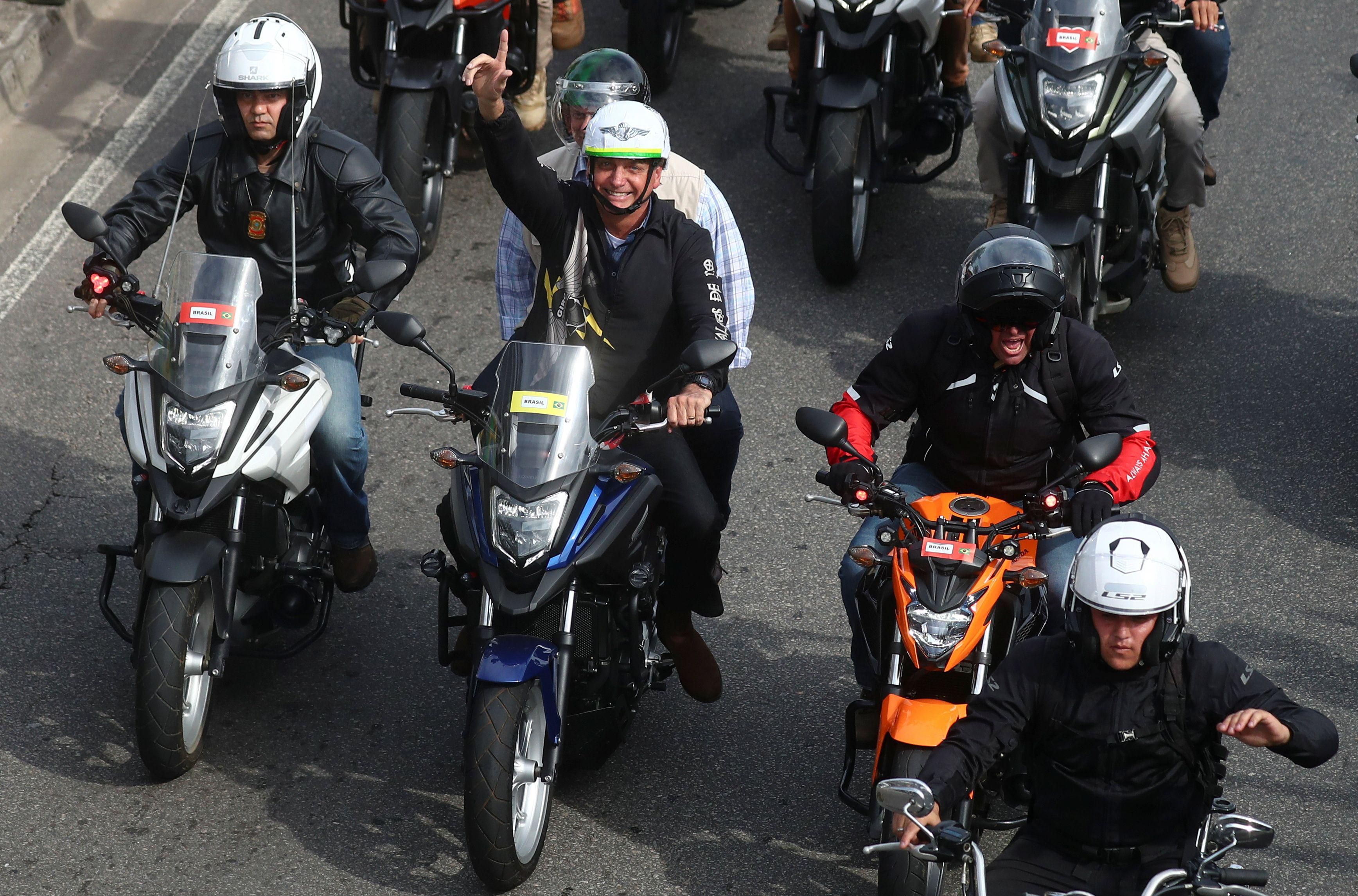News
May 24, 2021
24: Jair Bolsonaro, Brazil's rightwing populist president, held a motorbike rally through the streets of Rio de Janeiro in a bid to shore up support after his approval rating recently dropped to 24 percent, the lowest of his presidency. As the pandemic continues to pummel Brazil, Bolsonaro is now polling behind ex-president Lula ahead of next year's election.
850 million: Ethiopia awarded an $850 millioncontract to build a nationwide 5G wireless service to a US-backed telecommunications consortium. But there's one condition from the American side: Ethiopia can't buy equipment from Chinese telecommunications giant Huawei. This is a massive blow for Beijing amid an ongoing rivalry with Washington for technological influence around the globe.
18: The Biden administration will allow Haitian migrants to stay in the US legally for at least 18 months, citing the deteriorating security situation in their home country. This could apply to more than 100,000 Haitians residing in the US as of May 21, 2021.
1.3 million: Around 1.3 million Chinese COVID-19 vaccines arrived in Venezuela, the country's strongman President Nicolás Maduro said Sunday, allowing the South American country to accelerate its sluggish inoculation drive in the coming days. To date, Venezuela has received just 2.7 million doses from Russia and China for its population of 30 million people.
More For You
With close ties to both the US and China, can Singapore survive in an increasingly fragmented and chaotic world? Singapore’s President Tharman Shanmugaratnam joins Ian Bremmer on the GZERO World Podcast.
Most Popular
Think you know what's going on around the world? Here's your chance to prove it.
UK Prime Minister Keir Starmer shakes hands with Chinese President Xi Jinping, ahead of a bilateral meeting in Beijing, China, on January 29, 2026.
Carl Court/Pool via REUTERS
This week, Prime Minister Keir Starmer became the first UK leader to visit China in eight years. His goal was clear: build closer trade ties with Beijing.
Igmel Tamayo carries charcoal to sell on the side of a road for use as cooking fuel in homes, after US President Donald Trump vowed to stop Venezuelan oil and money from reaching the island as Cubans brace for worsening fuel shortages amid regular power outages, on the outskirts of Havana, Cuba, on January 12, 2026.
REUTERS/Norlys Perez
© 2025 GZERO Media. All Rights Reserved | A Eurasia Group media company.
